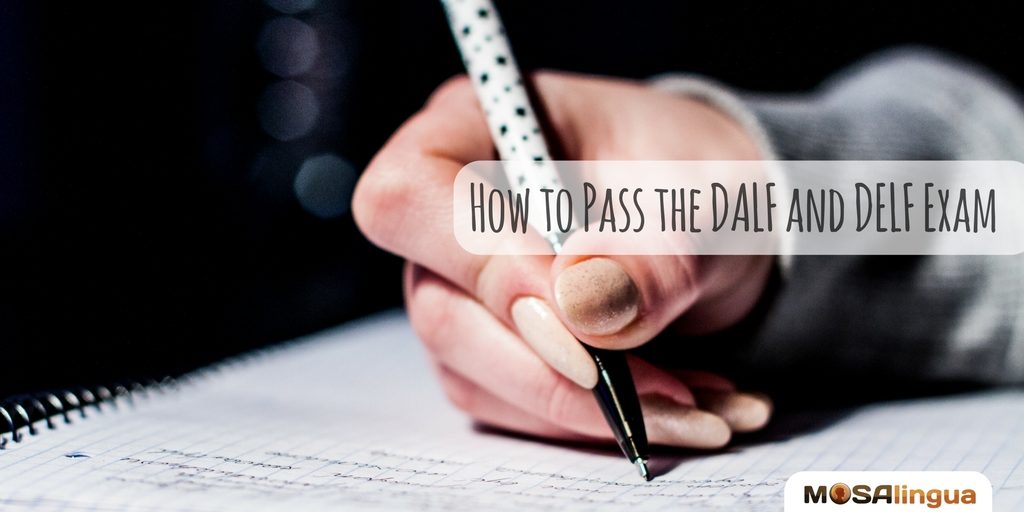In this article, I’d like to present some useful tools to help you prepare for the DALF C1 and C2. For these tests, you need an advanced level of language. That’s why you should take advantage of all the web has to offer. Here, you’ll find some excellent resources for preparing the DALF C1.

Books For the DALF/DELF Exam
CLE International is a French institute that publishes guides you can use to prepare for the DALF or DELF exam. For the DALF, you’ll find two books available on the website—Activités pour le Cadre Commun – Niveau C1/C2 by Corinne Kober-Kleinert, Marie-Louise Parizet, Sylvie Poisson-Quinton and Nouveau DALF C1 / C2 – 250 Activités by Vanessa Bourbon and Samuelle Chenard. If you study with these books, you’ll have two major resources that give pointers and hints to help you prepare for the exam.
If you can’t manage to get a hold of them, here’s a summary of the tools they offer:
Preparing the Written Test
The website CIEP makes available various documents that can help you prepare the written part. My first recommendation is to choose four or five reading passages and study them very well. Make a list of unfamiliar words and expressions that you can work on memorizing.
Remember that the DALF assesses written comprehension, lasts 50 minutes, and counts for 25% of the test. The chosen texts will form the basis of your answers to questions on a magazine excerpt or literary passage. You’ll also have to write an essay that contains an argument and that incorporates the written texts.
For the second part of the test where you write the argumentative essay, it must be around 250 words, and you’ll have 2 hours and 30 minutes. Practicing is vital so that you’re used to writing quickly and correctly. Ask a Francophone friend or a teacher to look at a practice essay to help you identify errors you’re making.
As you may know, French writing standards are very strict, especially in terms of how you organize an essay (introduction, idea 1, sub-idea 1.1, 1.2, idea 2…). Because of this, we suggest first identifying the general theme (ecology, politics, economics, art). Then, determine the main argument presented in the texts. Carefully review each paragraph in order to identify the line of thinking you’ll adopt. Finally, review the most important ideas you want to highlight. Remember to also review vocab like connectors, which are often key elements to written documents (toutefois, en outre, cependant, en revanche, or, certes, néanmois, etc.). These connectors will help you refine your writing and understand the text’s meaning on a deeper level.
For more on how to write argumentative essays, take a look at the Institut Francais page.
Writing summaries in French for the DALF/DELF exam
Remember that the written part occurs one week before the speaking component, so we recommend reviewing for that first. Then, you’ll have extra time to study for the oral exam.
The essay portion is an assignment where you must write a summary of the ideas in several written documents. This exercise is technical and rigorous, so it’s best to practice, practice, practice. Try to work daily on summarizing the main points of newspaper articles from Le Monde, Le Courrier International, etc.
The French Institute explains a simple way to structure and write summaries on its blog. Check out this article to see how to write summaries.
A formidable question people often ask us: Comment faire un plan? (How should I make an outline?) Here you’ll find a practical guide for summarizing.
Studying Listening Comprehension
The DELF C1 evaluates students’ ability to listen to long passages that take place in different settings (interviews, classes, conferences, informative media, surveys, etc.). To begin, it’s important to motivate yourself to regularly take advantage of the many resources online that will help you prepare. Remember that this section lasts 40 minutes (for listening comprehension) and 30 minutes (speaking), with each one counting for 25%.
Check out this article for more French listening comprehension practice.
Recommended Resources
- The French TV channel TV5 Monde offers tons of resources for reviewing listening comprehension. On the special section for learning French, “Apprendre le français,” you can watch a news segment called “7 jours sur la planète” that targets French learners. The news segment also comes with exercises according to level.
- The radio RFI (Radio France Internationale) provides an exhaustive list of broadcasts that are weekly updated, accompanied by written text that you can use to test your comprehension. You can find the exercises here.
- In order to complete the exercises on listening comprehension of interviews, the site Tenpensesquoi contains fun videos featuring young and old French people who talk about various topics (aliens, graffiti, plastic surgery, where to find…). I recommend this page because the clips are short, and the dialogs provide ample opportunity to hear everyday speech on a variety of themes. The site also gives you a chance to listen to varying opinions on many issues, which helps you perfect your comprehension skills and pick up new vocab.
I hope that these suggestions will help you in your DALF/DELF exam endeavors. If you want to know some tips for passing the speaking part of the DALF, come take a look at next week’s article.
If you know of other resources that can help those preparing for the DALF or DELF exam, please let us know in the comments.
Good luck!
Related posts:
Start improving your French today
Good news: we can help!
More good news: you can get started for free! With your free trial, you can test drive the most effective method for learning French for the next 15 days!
Vocabulary flashcards, videos with subtitles, audiobooks, articles adapted to your level – with MosaLingua Premium (Web & Mobile), you’ll have access to all this and more. Get started right now. It’s free—and risk-free—to try!









Practise has an s when used as a verb
Hi Paul,
This article was written by one of our American team members, and “practice” is always spelled with a “c” in US English. Confusing! Thanks for reading!
Abbe